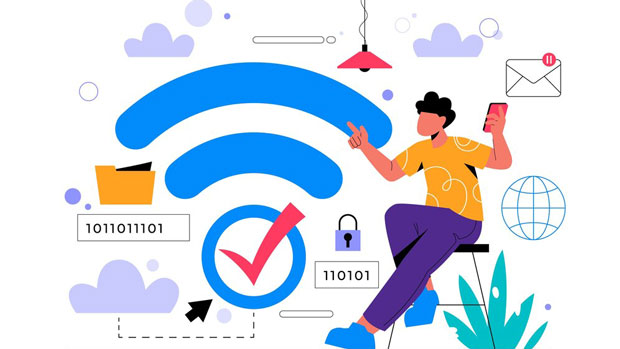PYPROXY stands out in the realm of socks5 proxy services due to its advanced bandwidth management features. These capabilities allow it to effectively optimize network traffic, enhance user experience, and ensure the efficient allocation of resources. PyProxy not only provides the reliability and anonymity that sock s5 proxies are known for, but it also delivers superior bandwidth control, making it a powerful tool for managing large-scale network environments. This article delves into the specific advantages PyProxy offers in bandwidth management, providing insights into how it supports improved data flow, reduces latency, and enhances overall performance for both individuals and businesses. Introduction: The Importance of Bandwidth Management in SOCKS5 ProxiesBandwidth management is a critical element for any proxy server, especially when considering high-demand applications such as video streaming, online gaming, and large-scale data transfers. SOCKS5 proxies, known for their versatility and security, require sophisticated bandwidth management to ensure that users experience minimal lag, reduced packet loss, and consistent network performance. PyProxy has emerged as a leader in this area, offering refined control mechanisms that provide enhanced efficiency for managing bandwidth resources in SOCKS5 proxy environments.Understanding SOCKS5 ProxiesBefore delving into the specifics of PyProxy’s advantages, it's essential to understand the functionality of SOCKS5 proxies. SOCKS5 is the most advanced version of the SOCKS (Socket Secure) protocol, providing a flexible and secure method for routing internet traffic. It supports a wide variety of traffic types, including HTTP, HTTPS, and even FTP, which makes it highly suitable for users who require anonymity, bypassing geographic restrictions, or masking their IP addresses.However, while SOCKS5 proxies offer unparalleled flexibility and security, managing bandwidth efficiently becomes increasingly important, especially in environments where multiple devices or high data consumption are involved. This is where PyProxy’s technology comes into play.PyProxy's Bandwidth Management FeaturesPyProxy provides several key features designed to enhance bandwidth management within SOCKS5 proxy networks. These features contribute to optimized data flow, reduced congestion, and a more stable network experience for all users. Below, we explore the major advantages that PyProxy offers in this regard.1. Dynamic Bandwidth AllocationOne of PyProxy's most notable features is its dynamic bandwidth allocation. This system intelligently distributes bandwidth based on real-time demand. When certain users or services require higher bandwidth, PyProxy prioritizes their traffic, ensuring that performance remains optimal. Conversely, when demand is low, PyProxy reallocates resources to avoid unnecessary congestion, maximizing the efficiency of available bandwidth.This dynamic allocation system is particularly useful in environments where the number of users fluctuates or where bandwidth-intensive applications are in use, such as video conferencing or large file transfers.2. Load Balancing and Traffic DistributionPyProxy also offers advanced load balancing capabilities that allow it to distribute network traffic evenly across multiple proxy servers. This ensures that no single server becomes overwhelmed with data, which could otherwise lead to slowdowns, bottlenecks, and potential downtime. By balancing the load across various servers, PyProxy ensures continuous performance, even under high-demand conditions.The load balancing mechanism ensures that every user connected to the network experiences a consistent level of service, regardless of the overall traffic volume or number of active connections. This is especially beneficial for businesses operating in regions with large numbers of users or traffic spikes.3. Traffic Shaping and Quality of Service (QoS)PyProxy incorporates traffic shaping technology, which allows it to control the flow of traffic more precisely. By implementing Quality of Service (QoS) policies, PyProxy can prioritize specific types of traffic, such as voice calls, gaming sessions, or video streams, over less time-sensitive data like email or web browsing.This ensures that high-priority services receive the necessary bandwidth, minimizing the likelihood of disruptions or delays. Additionally, QoS helps to avoid bottlenecks by preventing less critical traffic from consuming excessive bandwidth, maintaining a balance between performance and resource utilization.4. Bandwidth Monitoring and AnalyticsAn essential component of effective bandwidth management is real-time monitoring and data analysis. PyProxy excels in this area by providing comprehensive bandwidth analytics tools that track traffic patterns, usage statistics, and overall performance. This information helps administrators identify potential issues early, optimize resource allocation, and make informed decisions regarding network adjustments.The ability to monitor bandwidth usage on an ongoing basis also enables businesses to predict traffic spikes and prepare for them in advance. By proactively addressing potential bandwidth limitations, PyProxy ensures that users experience seamless performance, even during peak times.5. Scalability and FlexibilityAs businesses grow, so does the demand for network resources. PyProxy is designed to scale seamlessly with an expanding user base. Whether it is adding additional users, servers, or proxy locations, PyProxy’s bandwidth management system can easily accommodate these changes without compromising performance.This scalability is crucial for businesses that need to grow quickly or handle fluctuating traffic demands. PyProxy ensures that regardless of scale, its bandwidth management capabilities continue to provide optimal service to all users.Practical Benefits of PyProxy for Users and BusinessesThe advantages of PyProxy in SOCKS5 proxy bandwidth management are not just theoretical; they provide tangible benefits for users and businesses alike. These benefits can be summarized as follows:1. Improved User Experience: By ensuring efficient bandwidth allocation and minimizing congestion, PyProxy offers a smoother, faster browsing and data transfer experience.2. Increased Network Stability: Load balancing and traffic shaping contribute to stable network performance, reducing downtime and interruptions.3. Cost Efficiency: Efficient bandwidth usage means that businesses can maximize their existing resources without the need for costly infrastructure upgrades.4. Enhanced Security: PyProxy’s bandwidth management features help prevent malicious actors from overloading the network or using excessive resources, enhancing overall security.5. Proactive Network Management: With real-time monitoring and analytics, businesses can address potential issues before they affect users, ensuring continuous service.Conclusion: The Future of SOCKS5 Proxy Bandwidth Management with PyProxyAs the demand for secure and reliable internet connections continues to grow, effective bandwidth management becomes increasingly crucial. PyProxy’s advanced features for SOCKS5 proxies provide businesses and individual users with the tools they need to optimize their network resources. Through dynamic bandwidth allocation, load balancing, traffic shaping, and detailed analytics, PyProxy is poised to be a leader in the future of bandwidth management for SOCKS5 proxies.By offering scalability, flexibility, and proactive control, PyProxy ensures that users receive an optimal network experience, regardless of traffic demands. Its commitment to high-performance bandwidth management makes it an invaluable asset for anyone using SOCKS5 proxies to navigate the internet securely and efficiently.
Aug 15, 2025



































































